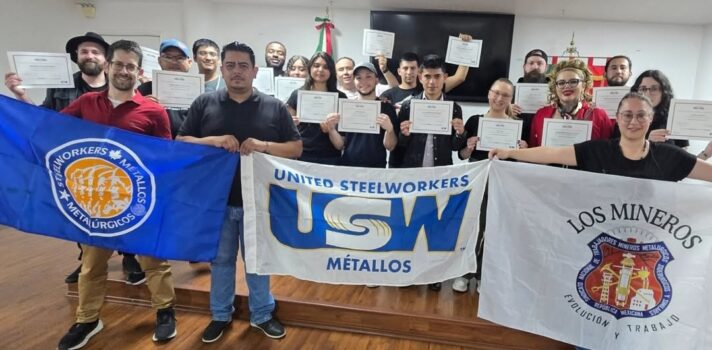OTTAWA – Yesterday’s vote in the House of Commons to advance Bill C-58 (banning replacement workers in the case of a labour dispute) to committee is a significant step forward for workers’ rights in Canada. The United Steelworkers union (USW) now hopes for swift progress through the committee stage.
“The vote on the anti-scab bill is an important victory for federally regulated workers,” said Marty Warren, USW National Director for Canada, “The all-party support is a recognition of the importance of this legislation, but there is still work to be done to make this law more effective, ensuring that it does not define more workers as essential than necessary and that it takes effect immediately upon adoption.”
Bill C-58 provides essential protections for workers during strikes and lockouts by prohibiting the use of replacement workers. This measure is proven to reduce the duration of labour disputes, uphold workers’ rights protected by the Canadian Charter of Rights and Freedoms, and restore balance to collective bargaining.
“We celebrate this step forward and expect productive work at committee stage,” Warren adds. “However, all parliamentarians must demonstrate their commitment to workers’ rights beyond mere votes. While we are surprised by this sudden support by the Conservatives for this workplace legislation, we also urge the Conservatives to refrain from filibustering, as seen in the past with the Sustainable Jobs Act, and to prioritize the interests of Canadian workers over corporate agendas.”
The USW reiterates its commitment to defending the rights and dignity of workers across Canada. Yesterday’s vote signifies a crucial step towards establishing fair and equitable conditions for workers.
About the United Steelworkers
The USW represents 225,000 members in nearly every economic sector across Canada and is the largest private-sector union in North America, with 850,000 members in Canada, the United States and the Caribbean.
Each year, thousands of workers choose to join the USW because of the union’s strong track record in creating healthier, safer and more respectful workplaces and negotiating better working conditions and fairer compensation – including good wages, benefits and pensions.
Share on Facebook


![A group of Métallos at a picket, raising a flag with the slogan "Force, solidarité, respesct" [Eng.: Force, Solidarity, Respect]](https://usw.ca/wp-content/uploads/2024/02/425711996_783799023784130_5407016741539192485_n-1024x683.jpg)

